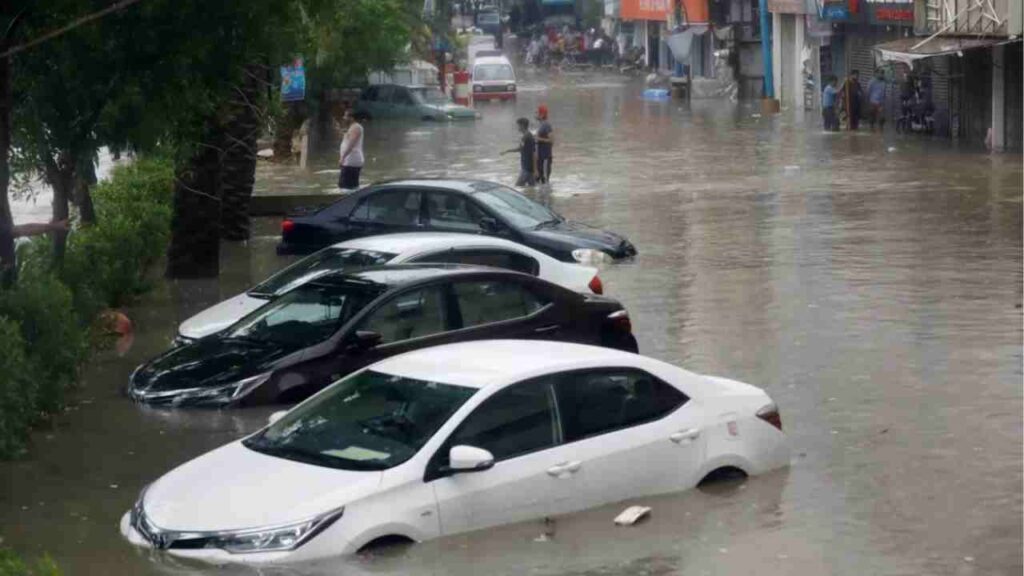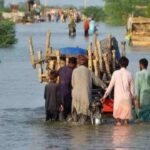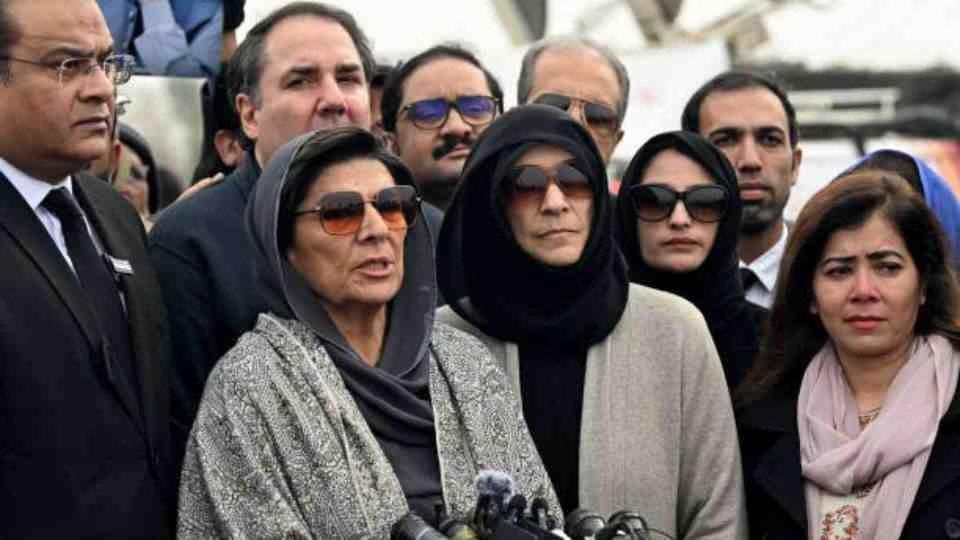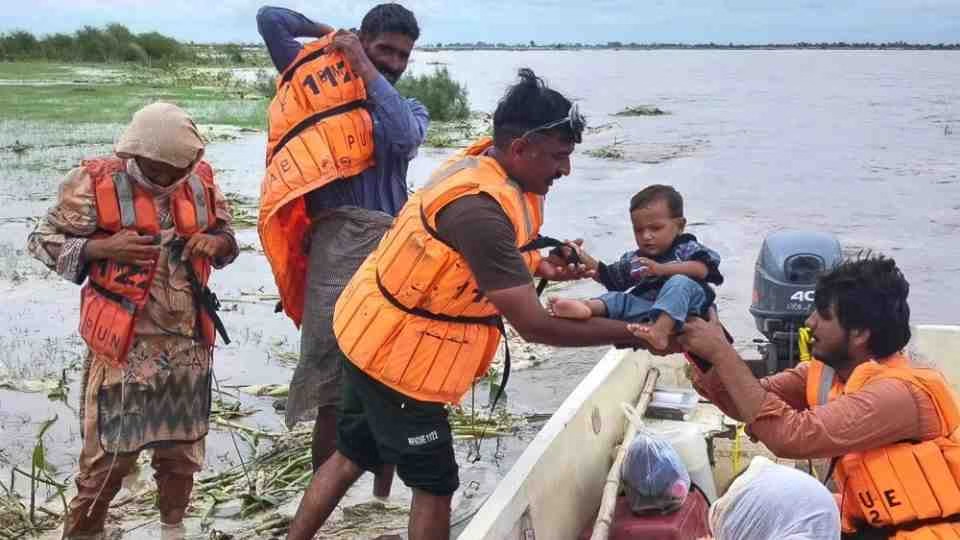The death toll from severe flooding in Karachi has climbed to eight following Tuesday’s torrential rainfall, as Pakistan’s largest city grapples with widespread infrastructure collapse and authorities brace for more devastating weather in the coming days.
Latest Casualties and Emergency Response
Two additional fatalities were confirmed Wednesday by Karachi Rescue 1122, adding to the six deaths reported on Tuesday. The latest victims include Abbas Mohsin, a 50-year-old man whose body was recovered from a storm drain near Gurumandir by Edhi Marine Service volunteers, and 19-year-old motorcyclist Yasir, who died from electrocution in Defence Housing Authority’s Phase 5.
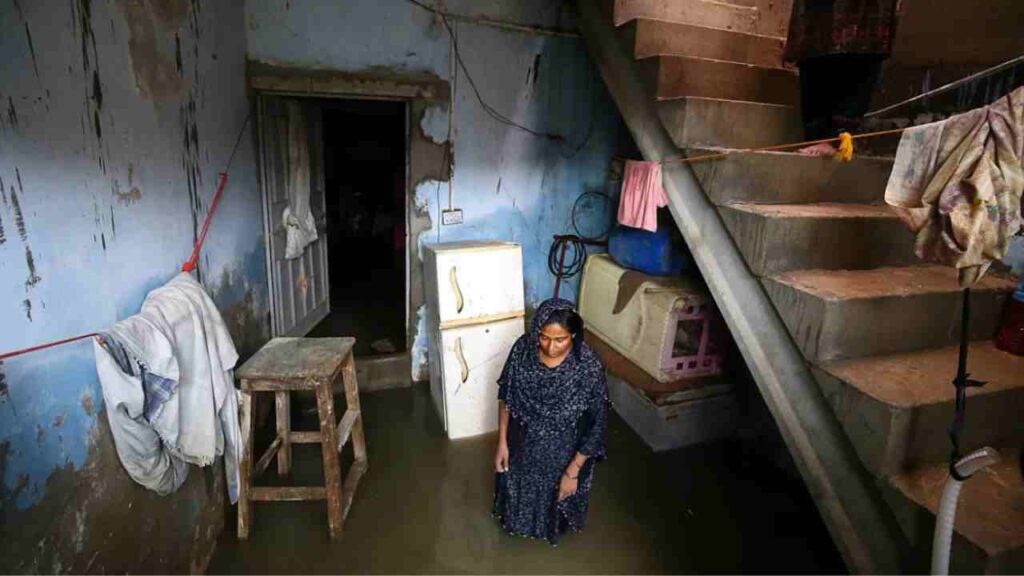
Emergency responders also rescued a man and woman after an old building partially collapsed in the Ranchore Line area, with both victims transported to Civil Hospital Karachi for treatment.
Infrastructure Overwhelmed
The deluge has exposed the fragility of Karachi’s urban infrastructure, with stormwater drains and sewage systems bursting under pressure. The crisis has severely disrupted industrial operations across Pakistan’s economic center, while widespread power and internet outages left entire neighborhoods in darkness for hours.
Major thoroughfares including Sharea Faisal, M.A. Jinnah Road, and I.I. Chundrigarh Road remained submerged, trapping hundreds of vehicles and forcing commuters to wade through waist-deep water. Even affluent areas like DHA and Clifton experienced severe flooding, with rainwater entering homes and businesses.
Tuesday’s Tragic Toll
The initial casualties on Tuesday included four family members who died when house walls collapsed in Gulistan-i-Jauhar’s Block-12, among them children aged two to seven years. An eight-year-old child perished in a similar incident in Orangi Town, while a young man in his twenties died from suspected electrocution in DHA Phase 7.
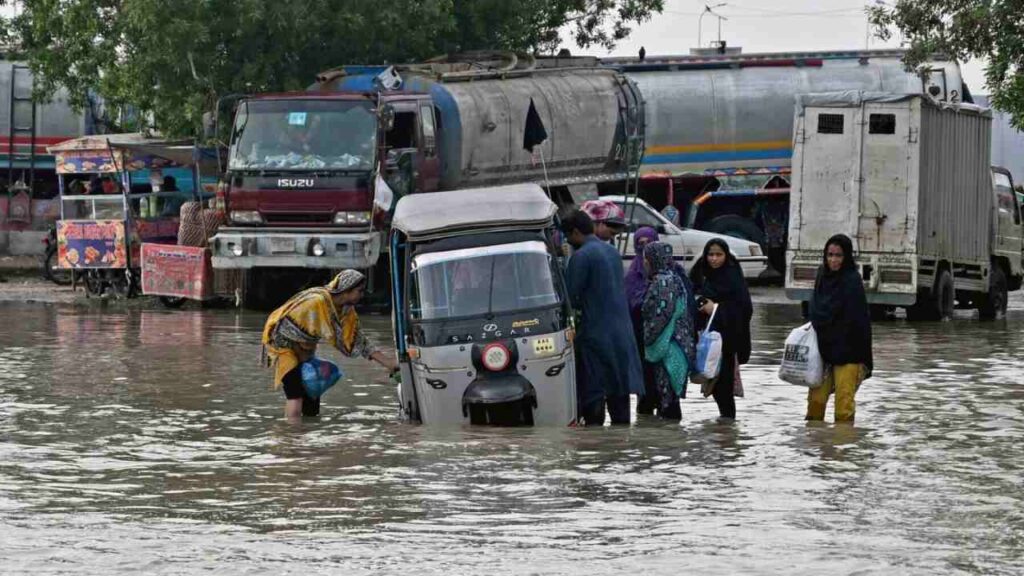
City Operations Suspended
Recognizing the severity of the crisis, provincial authorities declared a public holiday for Wednesday and ordered all educational institutions across the city to remain closed. Karachi Mayor Murtaza Wahab officially declared a rain emergency as the city struggles to cope with the aftermath.
Flight operations at Jinnah International Airport faced significant disruptions, with the Pakistan Aviation Authority confirming multiple delays, cancellations, and diversions due to the severe weather conditions.
Weather Warnings and Forecast
The Pakistan Meteorological Department has issued alarming forecasts for the region, predicting continued torrential rainfall across Sindh, parts of Balochistan, and other areas through August 22. Strong monsoon currents from the Arabian Sea and Bay of Bengal continue to affect southern Pakistan.
Widespread rain and thunderstorms with heavy to very heavy downpours are expected across multiple districts including Karachi, Mithi, Tharparkar, Umerkot, Mirpurkhas, Hyderabad, and several others. Balochistan provinces including Barkhan, Musakhel, Loralai, and coastal areas near Gwadar are also expected to experience severe weather.
Flood Risk Escalates
The Met Office has specifically warned of urban flooding risks in low-lying areas across Sindh, with Karachi facing particular vulnerability due to its inadequate drainage systems and dense population. The weather service has urged provincial disaster management authorities to implement necessary emergency preparations immediately.
As Wednesday brought clearer skies to parts of the city, residents continued dealing with standing water on major roads near I.I. Chundrigar, while authorities worked to restore essential services and assess the full extent of the damage to Pakistan’s commercial capital.

